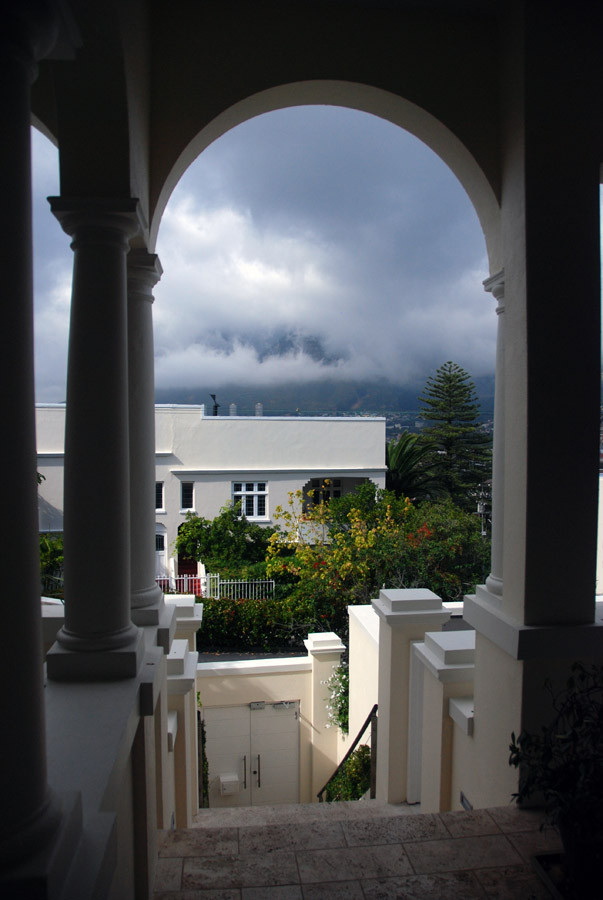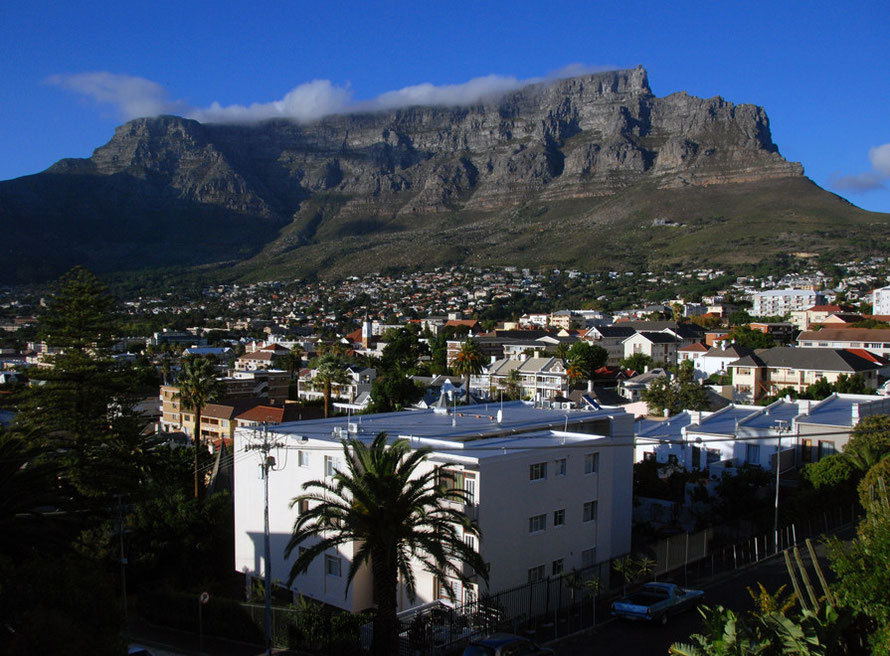The Friendliness
In his book Africa, Altered States, Ordinary Miracles Richard Dowden says that although " 'few go there' [to Africa] visitors are welcomed and cared for."
He goes on to say that Westerners arriving for the first time 'suddenly find themselves cracked open' and begin to understand why until then 'they have only half lived.' He concludes that 'amid our wasteful wealth and time-pressed lives we have lost values that still abound in Africa.' pp1-2.
He concludes this vein of thinking with the statement: 'I find more hopelessness in Highbury [in London] than I do in the whole of Africa'. p.4 To make sense of this hyperbole one can only surmise that Dowden is an Arsenal fan.
But having gone to Africa, although some would say that Cape Town is 'Africa lite', I think I see what he means.
Perhaps not surprisingly, we had less contact with black South Africans than we did with Coloured South Africans, and less contact with black South African men than black South African women. I met Zimbabwean men, Congolese men, Cameroonian and Ugandan men. But that says something about labour markets in the tourist industry.
And we met or had interactions with plenty of Afrikaners and long-time white residents of South Africa.

We met with universal friendliness. The lovely Coloured woman at the farm stand at the foot of the Bain’s Kloof Pass who asked me why I didn’t come and life in South Africa and gave me an extra bag of dried fruits. The Coloured waitress at the Constantia restaurant who had a right laugh with us. The Cameroonian guys at the Pan-African Market and the Man Utd/City rap. The older white Afrikaner guys in Montagu market. The Afrikaner guy who helped fix our car door lock at Stoney Point. The student I talked to – howzit – about to go walking up the Devil’s Peak. The Zimbabwean waiter who told us about his hopes of going home. The woman who made our breakfast at the guest house.
Our guesthouse was perched above one of the more beautiful white suburbs (Tamboerskloof) of Cape Town, laidback and arty/affluent, and it looked out at Table Mountain. We sat on the balcony drinking Cape wine watching the sun cast deepening shadows across the three thousand foot rock walls while church bells and a muezzin called the Rainbow Nation to prayer. Outside as night fell Congolese informal security guards patrolled the streets with big nightsticks. Many houses have electric security fences and nearly all are signed up to the City Bowl Armed Response service. We went to bed in the big empty turn-of-the-century house as the only guests with no live-in staff, the South-Easterly gale buffeting the old windows and banging through the night. I'd lie awake listening, wondering how good the fancy security system really was, and I'd run through escape scenarios. We woke to brilliant sunshine and breakfast made by Julie (not her real name) who has gotten up at 5.00 to leave her township of a million black South Africans - Khayelitsha - and take three minibus taxis to get to work for 7.00.
She has two children and has taken in a cousin who lives with her. She is studying to be a social worker. One of her first cases as a trainee is to prepare a case of a 19 month old child who was raped in the township. The perpetrator has been caught by people in the township and - as she put it - has 'had his penis cut'. When we got back to the UK we sent Julie a chunk of money to help with her life. She went out and bought the raped child, who is now out of hospital, some new winter clothes.
She studies from midnight to four a.m. to prepare her social work modules and grabs a few hours of sleep a night. She visits a prison 10 hours drive away twice a month to bring the gospel to prisoners. A couple visiting the guesthouse pay for her three year old's schooling and intend to see him through to the end of his education. Her other son is at boarding school 12 hours away and is being paid for by another guest. She is afraid of losing contact with him and he wants to go to study in Zimbabwe. She says she is tired and sometimes asks God why her lot has been so hard. But she says that it is the joy in her heart keeps her going.
A few months after our departure the guest house was sold and Julie was made redundant, with no compensation. She continues to live in the township. Her shack was flooded this winter (again). We send money and say hello on Facebook.
We did meet a Ugandan guy down in one of the Cape Town water front 'African Markets' who seemed to take a disliking to me. When I said, 'Oh, you're from Uganda' he barked back at me in his big booming voice 'U GAN DA'. From him I got a real sense of both his aspiration and realisation of the limited possibilites of the world - he had a wide network of family living in London and the States - and his despairing sense of life passing him by as a glorified shop assistant to wealthy Europeans, Americans, Chinese and Japanese filling their baskets with ethnic loot to haul home. In the end he even let me take a few photos of the amazing collection of pan-african art in the emporium and we parted on more friendly terms.
Even when we were leaving Cape Town, sitting out the hours in the departure lounge at the airport at the only place to eat we got chatting to the Coloured waitress, who was pretty rushed off her feet, but had time to tell us that you could get fantastic chicken at the 'Pick and Pay' in Ashton, after had told we'd been to Montagu.
Andre Brink, the South African novelist, said in an interview with the Economist that he would be staying in South Africa, even though his nephew had been recently shot dead in a robbery.
There is, he says, an “urgency and immediacy” about life in South Africa that lends it a sense of involvement and relevance he cannot imagine finding elsewhere.
Strange as it may seem, I got a sense of what he might mean during our two weeks in the Western Cape.



